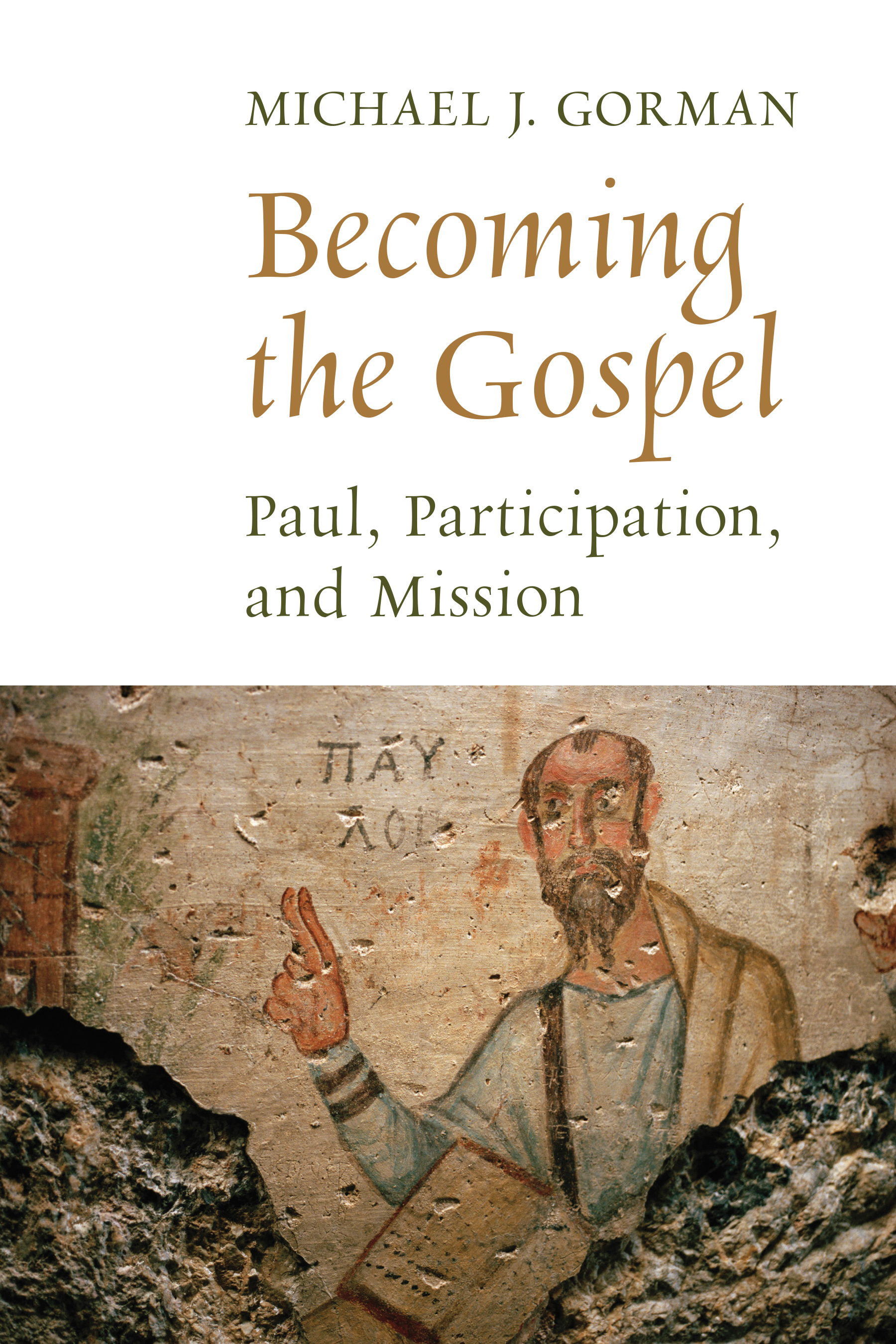Good Words or Good Works? A Look at Michael J. Gorman’s Becoming the Gospel
In 2012, a CNN article was published with the title, “Do You Believe in a Red State Jesus or a Blue State Jesus?” The thrust of the article, which included a quiz, argued that Jesus can appear as more republican or more democratic depending on how you slice his teachings and life in the Gospels. According to this article, a “red” (republican) Jesus is verbally evangelistic and cares about saving souls for heaven. A “blue” (democratic) Jesus is advocate for the poor and the downtrodden. And, if you want to elect a president who has real Christian values, you have to choose just one Jesus.
This article is reflective of a divide in Christianity in America. Some churches promote a word-centered gospel where conversion and salvation are primary. Other churches believe in a benevolence gospel that concentrates on doing good and blessing others. Which approach is “right”?
 According to Dr. Michael J. Gorman, author of the new book Becoming the Gospel: Paul, Participation, and Mission (Eerdmans, 2015), neither of these options (put in these antithetical terms) is true to the gospel Paul embraced and proclaimed. Gorman applies “missional hermeneutics” to a study of Paul’s letters in pursuit of a richer understanding of Paul’s theology. He defines “missional hermeneutics” as an approach “grounded in the theological principle of the missio Dei, or mission of God” (53). The missionary God seeks “not just to save ‘souls’ to take to heaven some day, but to restore and save the created order: individuals, communities, nations, the environment, the world, the cosmos.” (53).
According to Dr. Michael J. Gorman, author of the new book Becoming the Gospel: Paul, Participation, and Mission (Eerdmans, 2015), neither of these options (put in these antithetical terms) is true to the gospel Paul embraced and proclaimed. Gorman applies “missional hermeneutics” to a study of Paul’s letters in pursuit of a richer understanding of Paul’s theology. He defines “missional hermeneutics” as an approach “grounded in the theological principle of the missio Dei, or mission of God” (53). The missionary God seeks “not just to save ‘souls’ to take to heaven some day, but to restore and save the created order: individuals, communities, nations, the environment, the world, the cosmos.” (53).
In the academic study of Paul’s ministry, a debate has been ongoing regarding whether or not the Apostle specifically charged the churches he planted with verbally sharing the gospel. Actually, we do not have strong, conclusive evidence from his letters that he placed this kind of expectation on them. Thus, some have concluded that Paul expected apostles to do the “talking,” and the churches would attract new believers through their good works. Again, we are back to the question of gospel “words” or “works.”
Gorman breaks this either-or paradigm by focusing on how Paul articulates drawing in of believers so as to participate in God’s own life through Jesus Christ. This, in turn, leads believers not simply to believe the gospel, but to become the gospel. Believers become an outworking of the redeeming work of God in their obedience. The church becomes “a living exegesis of the gospel of God” (43).
To demonstrate this historically, Gorman turns to 1 Thessalonians where Paul notes that, despite severe persecution, their faithfulness to God has rung out and encouraged other churches in Macedonia and Achaia. Gorman reasons that, for these early believers to be persecuted, they must have been living out a radical trust and faithfulness in Jesus Christ. Furthermore, others would have called them to account for this behavior, and naturally this would open up opportunities to speak about the gospel. He proposes that the best word for what believers do vis-à-vis the gospel is “witness.” They witness in “word, in deed, and in the unpleasant consequences that often attend faithful witness” (61). In his conclusion he offers an apt summary of how witness captures this human participation in the gospel:
[A]s the church, by the power of the Spirit, becomes the gospel in its fullness by participating fully in the life of God manifested in Christ, the church offers an appropriate and credible witness to the gospel. (304)
What Gorman imagines, then, is not the church as a gospel-megaphone or as a charity organization per se. Rather, he views the church as a living being, made alive by God in Christ through the Spirit, and participating in the life of God as the triune God is on a world-transforming mission. This is a challenging, though refreshing, theological study of Paul’s gospel.
Please pick up this book to learn more about Paul and mission, but in the meantime, check out his short article on “Missional Musings on Paul.”
